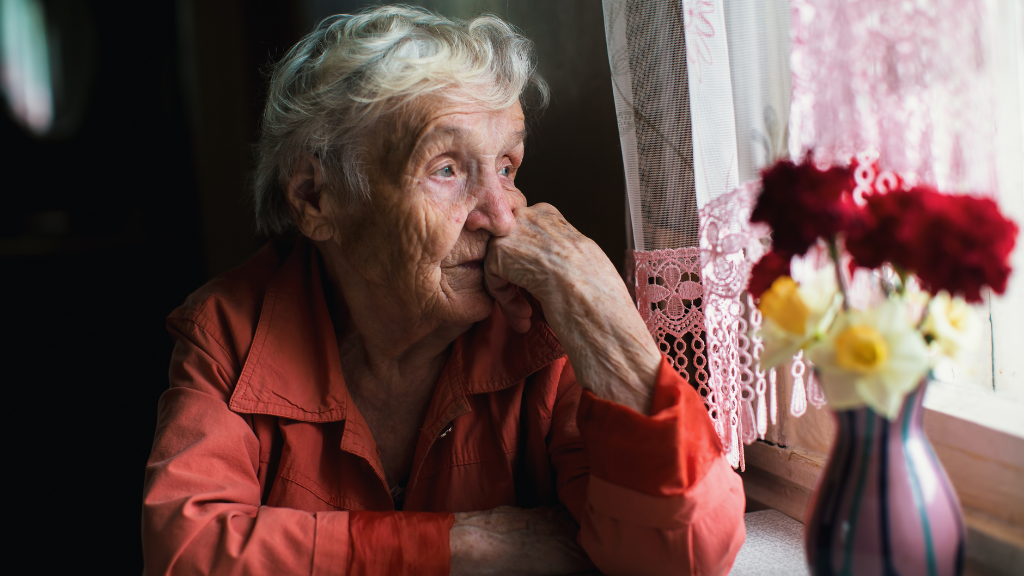Did you know that Leading Edge Senior Care has a Dementia Support Group? We meet monthly in Mesa. For more details <click here>
Ways To Spot Depression In Seniors
Ways To Spot Depression In Seniors
As our loved ones age, it’s crucial to pay attention to their emotional well-being, as seniors are not immune to mental health challenges such as depression. Recognizing the signs of depression in seniors is essential for providing them with the care and support they need. This article will explore various ways to spot depression in seniors, helping family members and caregivers address this issue and improve the overall quality of life for their elderly loved ones.
Physical Changes:
Depression in seniors can manifest in physical symptoms. Keep an eye out for changes in appetite, weight loss, fatigue, and sleep disturbances. These changes can be indicative of emotional distress that may require attention.
Loss of Interest:
One of the key signs of depression is a noticeable loss of interest or pleasure in activities that the senior once enjoyed. If they suddenly withdraw from hobbies, social interactions, or even personal hygiene, it might be a red flag.
Persistent Sadness:
If a senior displays persistent feelings of sadness, hopelessness, or emptiness, it’s important to take notice. This emotional pain should not be dismissed and may indicate underlying depression.
Cognitive Changes:
Depression can impact cognitive functions. If you notice seniors experiencing difficulty concentrating, making decisions, or remembering things, it could be a sign of depression affecting their cognitive abilities.
Irritability and Mood Swings:
While depression is often associated with sadness, it can also lead to irritability, agitation, and mood swings. Seniors may become easily frustrated or display unexplained mood changes.
Physical Complaints:
Depression can manifest as physical complaints such as unexplained aches, headaches, or digestive issues. These symptoms might not have a clear medical cause but can be linked to emotional distress.
Social Isolation:
Seniors experiencing depression might withdraw from social interactions. If you notice a loved one becoming increasingly isolated, it’s important to address their emotional well-being.
Unexplained Weight Changes:
Depression can impact seniors’ eating habits, leading to unexplained weight loss or gain. Changes in appetite and weight can be a sign that something is amiss emotionally.
Expressions of Helplessness:
Listen for expressions of helplessness or statements that life is no longer worth living. Seniors may make subtle comments about their feelings of hopelessness or express thoughts of suicide.
Physical Neglect:
Depression can lead to neglecting personal care, hygiene, and the home environment. If a senior’s appearance or living conditions deteriorate, it might be related to their emotional state.
When to Seek Help:
If you observe any of these signs in a senior, it’s essential to approach the situation with empathy and care. Engage in open conversations about their feelings and experiences. If the signs persist and interfere with their daily life, seeking professional help is crucial. Consulting a healthcare provider, mental health specialist, or counselor can lead to a proper diagnosis and a suitable treatment plan.
The Importance of Support:
Seniors struggling with depression need understanding and support from their loved ones. Please encourage them to express their feelings and offer assistance in seeking help. Remember that depression is not a normal part of aging, and seniors deserve compassionate care to improve their mental health and overall well-being.
Conclusion:
Spotting depression in seniors requires vigilance, empathy, and effective communication. By recognizing the signs and seeking appropriate support, families, and caregivers can help seniors manage their mental health challenges and improve their quality of life. Addressing depression in seniors is a proactive step towards ensuring their emotional well-being during their golden years.

